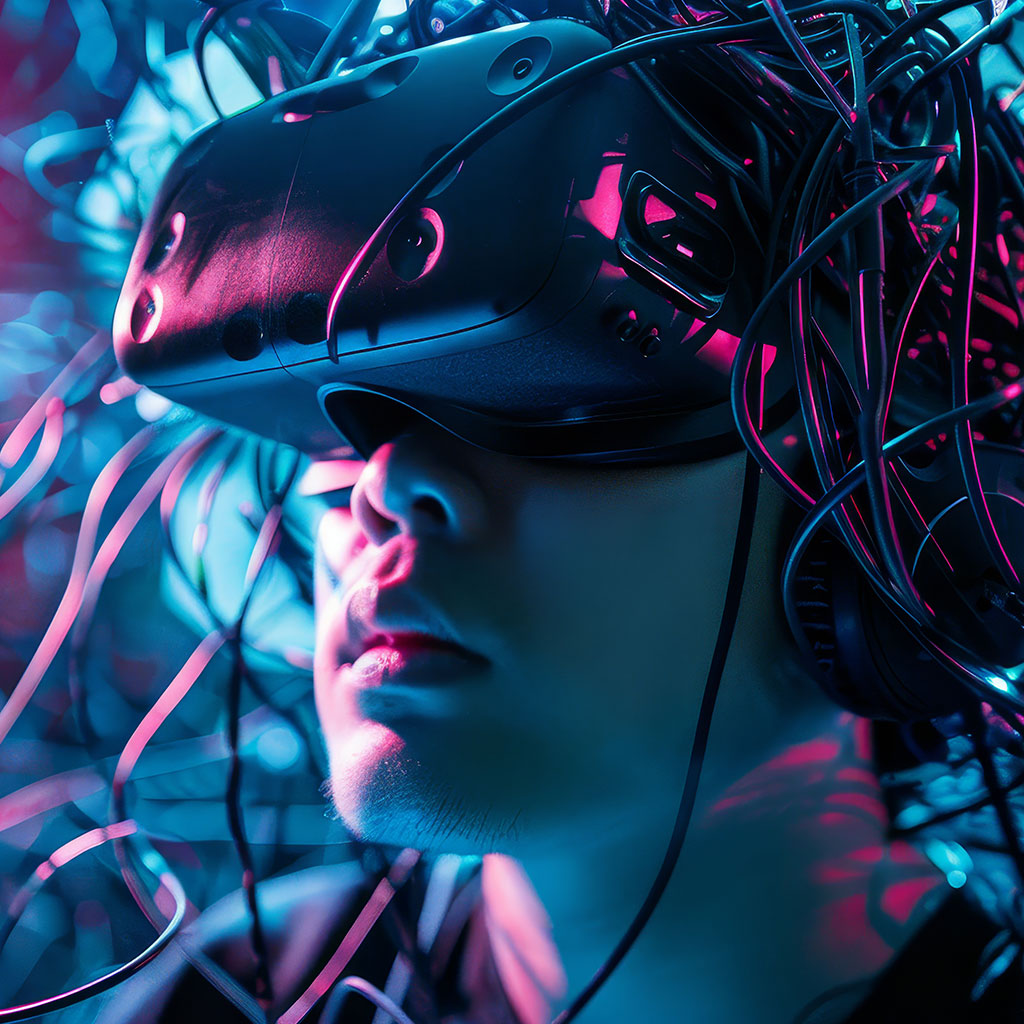The video game industry is in the midst of a quiet revolution. Neuro-gaming, or the use of mind-controlled interfaces in gaming, is set to change the way we play and interact with virtual worlds. This innovative technology allows players to control games using only their thoughts, offering an immersive and intuitive gaming experience like no other. With major players in the tech industry investing in brain-computer interface (BCI) research and development, neuro-gaming is poised to become the next big trend in the entertainment sector.
At its core, neuro-gaming involves using sensors to detect and interpret brain activity, allowing users to interact with digital environments through thought alone. This technology has been in development for several years, but recent advances in hardware and software have brought it closer to mainstream adoption. BCI devices typically use electroencephalography (EEG) sensors to measure brain waves, which are then analyzed and translated into digital commands. This enables players to control on-screen actions, select options, or navigate through virtual spaces using nothing but their minds.
The potential benefits of neuro-gaming are vast. For one, it offers a more immersive and engaging gaming experience, blurring the lines between the virtual and the real. It also has the potential to make video games more accessible to individuals with physical disabilities, as it does not rely on traditional hand-held controllers or physical interactions. Additionally, neuro-gaming could open up new avenues for cognitive training and rehabilitation, helping individuals improve their focus, attention, and problem-solving skills.
While the technology is still in its infancy, several companies have already released consumer-ready products that showcase the potential of neuro-gaming. One such example is NextMind, a French startup that has developed a wearable BCI device that sits at the back of the head and detects neural activity associated with visual attention. This allows users to control games and other applications simply by focusing their attention on different objects or options on a screen.
Another player in the neuro-gaming space is Neurable, a US-based company that has created a BCI platform that uses dry EEG sensors to detect a range of mental commands, including eye movements and visual focus. Their technology has been licensed by gaming giant Valve, suggesting that we could soon see brain-controlled interfaces integrated into popular gaming platforms.
As the field of neuro-gaming advances, we can expect to see more sophisticated applications and use cases emerge. The potential for this technology to revolutionize not just entertainment but also healthcare and human-computer interaction is immense. With continued research and development, the day when we can control virtual worlds with our thoughts alone may not be far off.
One of the key benefits of neuro-gaming is its ability to enhance immersion in virtual reality (VR) environments. VR has already proven its potential to transport users to fantastical worlds and deliver unprecedented levels of immersion. However, the current generation of VR controllers, which rely on physical gestures and button presses, can sometimes disrupt the sense of presence and break the illusion of being in a virtual world.
Neuro-gaming offers a solution to this problem by eliminating the need for physical controllers altogether. With brain-controlled interfaces, users can navigate and interact with VR environments using only their thoughts, delivering a more seamless and intuitive experience. This could open up new possibilities for VR gaming, allowing developers to create more complex and interactive virtual worlds that users can explore and manipulate using the power of their minds.
Moreover, neuro-gaming has the potential to extend the benefits of VR beyond entertainment. In healthcare, for example, VR is already being used to treat conditions such as post-traumatic stress disorder (PTSDAY), anxiety, and phobias. With neuro-gaming, the therapeutic potential of VR could be enhanced, allowing clinicians to monitor and respond to patients’ brain activity in real time, providing more personalized and effective treatments.
It is important to address the ethical considerations and potential pitfalls as the excitement around neuro-gaming grows. One key concern is privacy and data security. As neuro-gaming devices collect sensitive brain data, ensuring that this information remains secure and is used responsibly is crucial. Users will need to have confidence that their thoughts and neural patterns will not be exploited or used without their consent.
Another concern is the potential for neuro-addiction and the negative impact on mental health. As with any new technology, there is a risk that excessive or inappropriate use of neuro-gaming could lead to negative consequences for users’ well-being. Establishing guidelines for responsible use and educating users about the potential risks will be essential to mitigate these concerns.
Finally, equitable access to neuro-gaming technology is a consideration. As with other emerging technologies, there is a risk that neuro-gaming could exacerbate existing inequalities, with those of higher socioeconomic status having greater access to these tools. Ensuring that neuro-gaming is affordable and accessible to a wide range of users will be crucial to its responsible adoption and integration into society.
As with any emerging technology, the responsible development and deployment of neuro-gaming will be crucial to its long-term success and acceptance. Developers, researchers, and policymakers will need to work together to address these concerns and establish ethical guidelines and regulations that protect users and promote the positive potential of this exciting new field.
In conclusion, neuro-gaming represents a significant leap forward in the world of interactive entertainment, offering players an unprecedented level of immersion and engagement. With major tech companies and startups investing in brain-computer interface technology, it is only a matter of time before mind-controlled gaming becomes a mainstream reality. As with any new technology, there are challenges and considerations to be addressed, but the potential benefits for both entertainment and beyond are incredibly exciting. The future of gaming is undoubtedly bright, and with neuro-gaming, it’s about to get a whole lot more mind-blowing.
